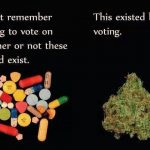Source: NEW YORK DAILY NEWS
January 13, 2013
By Ricardo Cortés
One standard for a major soft drink, another for the native people of South America
Last week, the United Nations voted on an appeal by Bolivia to amend the international treaty that prohibits the chewing of coca leaf.
Bolivia won a partial victory — a tiny sign that the world may be ever so slowly coming to its senses on the insanely harsh treatment of this humble, mostly harmless plant and the people, mostly South American natives, who enjoy it in its raw form.
Coca chewing has been a ritual in the Andes for thousands of years, and it is practiced by millions of people throughout the continent today. Tourists to the highlands are offered coca tea to alleviate altitude sickness, and the plant’s mild stimulant properties have been known around the globe for centuries.
In March 2009, Bolivian President Evo Morales stood before the UN and discussed the history of coca use for purposes social, spiritual, medicinal and nutritional. Morales, a former coca farmer himself, then put a leaf in his mouth, sparking applause from the assembly.
The controversial stimulant in the plant, of course, is the alkaloid coca-ine , present in trace amounts to the coca chewer, giving users a boost of energy akin to a cup of coffee (which contains caffe-ine , another alkaloid that is potent in concentrated form).
When refined, the coca plant provides raw material for the production of the illicit drug cocaine, and in an effort to limit cultivation of the plant, even traditional usage has been banned by a worldwide decree.
That’s the problem: Efforts to kill the cocaine trade have haphazardly and heartlessly cracked down on anyone and everyone who produces or enjoys the unadulterated leaf. A 1961 agreement called the Single Convention on Narcotic Drugs, still in effect around the world, orders people to stop chewing the leaves and mandates the destruction of all wild coca bushes.
This fact might merely be unfortunate and overzealous — but, because of a wrinkle in United States history, it is also hugely hypocritical.
You see, the Single Convention was adopted after years of negotiations led in great part by Harry J. Anslinger, long-time commissioner of the Federal Bureau of Narcotics. Best known today for his fervent campaign against marijuana, Anslinger had a strange relationship with the coca plant: spearheading its prohibition while simultaneously ensuring access to the leaf for a single, powerful consumer, The Coca-Cola Company.
For decades leading up to the signing of the Single Convention, Anslinger worked closely with Coca-Cola to procure a decocainized coca extract for the “secret formula” of the beverage. Cooperating with The Coca-Cola Company and Maywood executives, Anslinger was also their central ally in negotiations leading to the completion of the Single Convention agreement.
Indeed, as it was finally adopted, in addition to banning traditional use of coca leaves, the treaty contains a provision that allows use of the plant for the special purposes of The Coca-Cola Company.
Since 1903, Peruvian coca has made its way to a manufacturing plant in Maywood, New Jersey, at the behest of the beverage giant. Over the past century, thousands of tons of leaf have shipped to this discreet facility, where cocaine is removed from the plant and sold separately for medicinal purposes (in 1959, the site was acquired by Stepan Company, which maintains the business today).
This is the world we have created: We impose tough restrictions on farming and use of natural coca leaf by the people of South America, while simultaneously affording the privilege of using an altered version of the plant to an American corporation making billions of dollars off the very same leaf.
Of course, there is a distinction to be made between the chewing of coca leaf in South America and the recreational use of cocaine in the United States. But one can be vigorously against cocaine the narcotic — and the criminal enterprises it helps fuel — and still understand the pernicious effects of the blunt instrument that is the Single Convention.
It is time to address this long-standing error. Last week’s UN vote marked a small victory: While Bolivia was denied its continued efforts to amend the treaty, it was allowed to withdraw from the agreement and rejoin with an explicit reservation against the coca prohibitions.
That minimal, largely symbolic step is not enough. The U.S. should drop its continued challenges to Bolivia’s desire to cultivate a leaf so closely linked with the cultural identity of its people. That, or we should reconsider the global legal loophole that allows a huge American beverage company to use a plant that is categorically denied to its own native caretakers.
Cortes is the author of “A Secret History of Coffee, Coca & Cola” and the illustrator of “Go the F— to Sleep.”




 Creative Commons Attribution
Creative Commons Attribution